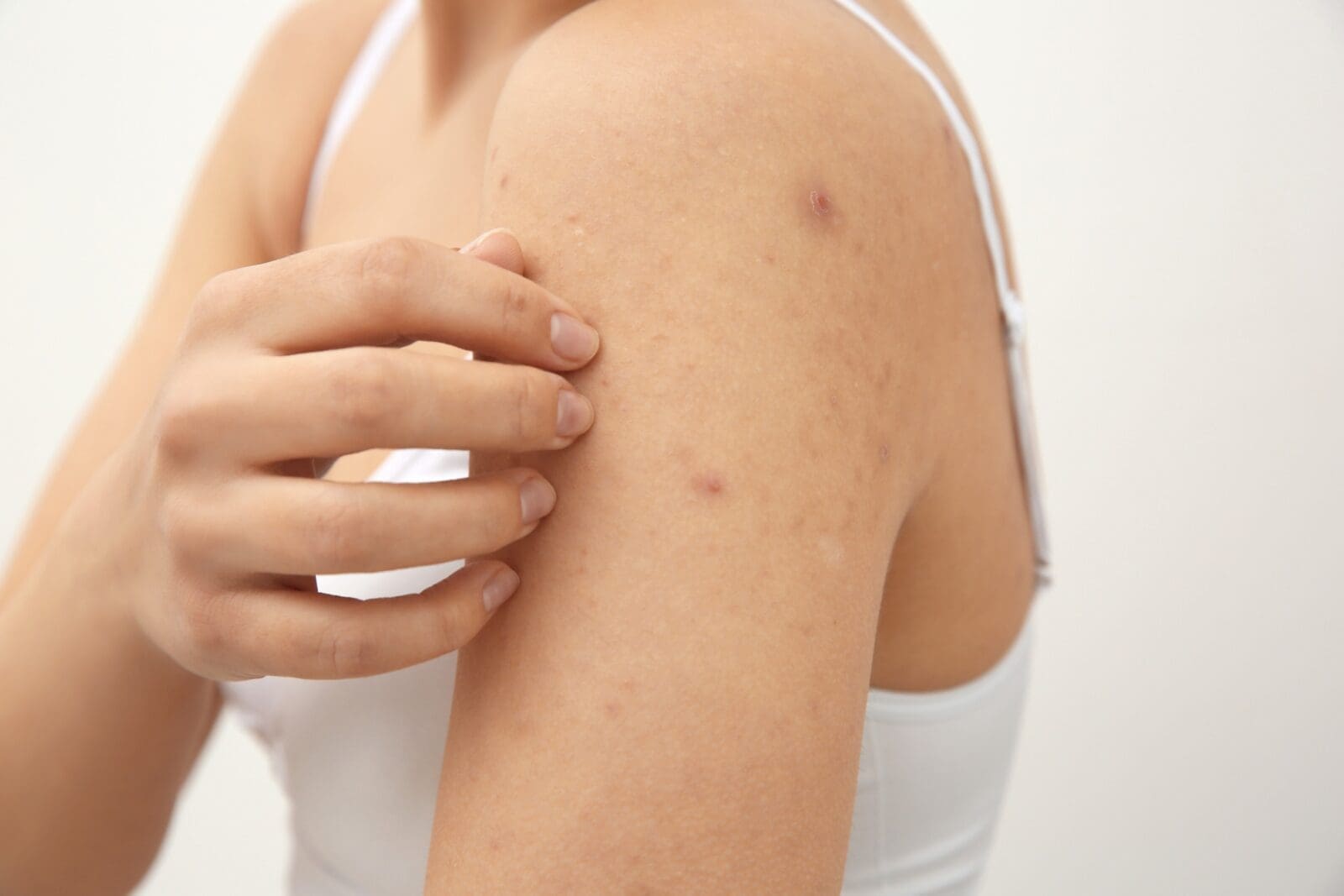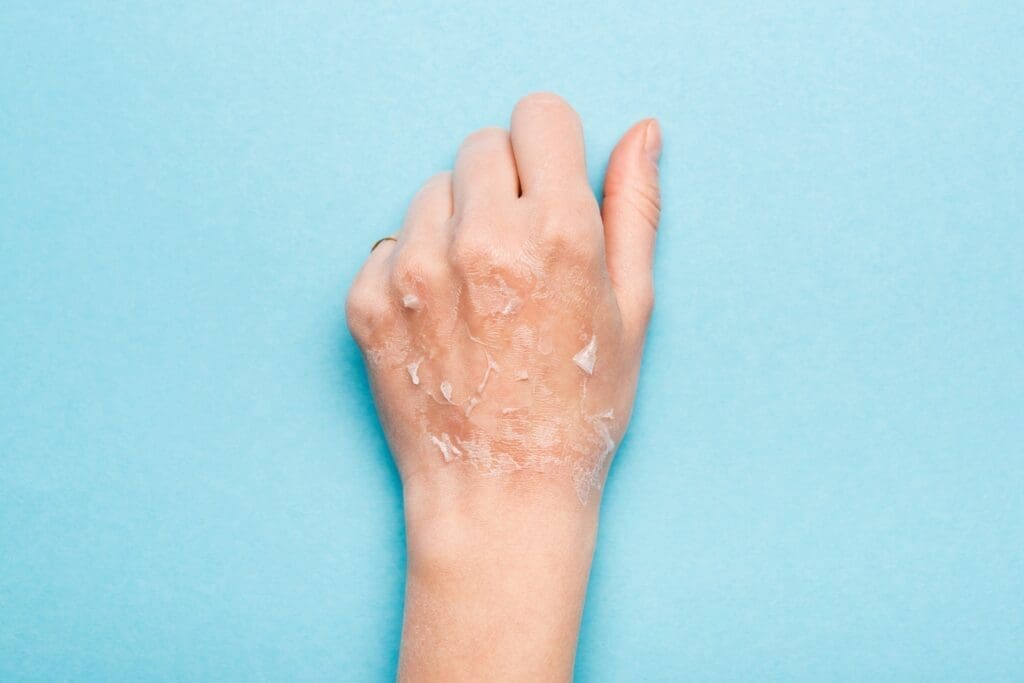

Dry and Itchy Skin
( English-Speaking Dermatologist in Taiwan )
Patients with dry and itchy skin are commonly seen in clinics, making it a frequent yet uncomfortable issue. Below, we will explore the causes, symptoms, diagnosis, and treatment options for dry and itchy skin to help you better understand this condition.

Causes of Dry and Itchy Skin
Dry and itchy skin can be caused by a variety of factors. Here are some common causes:
- Dry Skin: One of the most common reasons is excessively dry skin, which can result from a dry climate, low humidity, prolonged exposure to water, use of harsh cleansers, or taking hot showers.
- Skin Conditions: Certain skin conditions like eczema (atopic dermatitis), psoriasis, and ringworm can cause persistent dry and itchy skin.
- Allergic Reactions: Allergic reactions to specific substances or allergens, such as pollen, pet dander, foods, or medications, may lead to dry and itchy skin.
- Weather Changes: Cold weather can reduce the skin’s natural oil production, leading to dryness, cracking, and itchiness.
- Medication Side Effects: Some medications may cause dry and itchy skin as a side effect.
- Skin Infections: Bacterial, fungal, or viral infections can lead to itchiness. For example, a yeast infection (candidiasis) often causes itchy skin.
- Neurogenic Itch: Sometimes, dry and itchy skin may have neurological causes, such as stress, anxiety, or nerve-related skin conditions.
- Aging: As people age, the skin’s natural moisture retention ability may decrease, making it more prone to dryness and itching.
Effects of Lower Temperatures on Skin
- Reduced Oil Secretion: Cold weather decreases oil production in the skin, making it drier and more prone to cracking and itching.
- Poor Blood Circulation: Lower temperatures can reduce blood circulation, affecting the skin’s supply of nutrients and oxygen.
- Decreased Activity of Sweat and Sebaceous Glands: In cold environments, the activity of sweat and sebaceous glands typically decreases, leading to drier skin.
- Increased Skin Damage: Activities that expose skin to cold conditions, such as prolonged exposure to chilly wind, can worsen dryness and itching.
Symptoms of Dry and Itchy Skin
Symptoms of dry and itchy skin may include:
- Itching: This can range from mild to persistent discomfort.
- Red Patches: Scratching may cause the skin to become red and inflamed.
- Dry Flakes or Scales: In some cases, the skin may develop dry flakes or dandruff-like scales.
The severity of symptoms varies by individual, from mild to more intense discomfort.
Diagnosis of Dry and Itchy Skin
Diagnosing dry and itchy skin generally involves reviewing the patient’s medical history, symptoms, and conducting a physical examination. In some cases, further tests may be necessary, such as skin scrapings, allergy tests, or blood tests, to identify the underlying cause.
Treatment of Dry and Itchy Skin
Treatment for dry and itchy skin depends on the root cause. Common treatment methods include:
- Moisturizing: Keeping the skin hydrated is essential for relieving dryness and itchiness. Moisturizers, such as lotions or creams, help retain skin moisture.
- Avoiding Irritants: Reducing exposure to harsh soaps, bath products, and prolonged hot water can help prevent further dryness.
- Antihistamines: If allergies are causing the itchiness, antihistamines may be required.
- Topical Medications: For certain skin conditions, such as eczema, topical corticosteroids may be necessary.
- Prescription Medications: Depending on the specific case, doctors may prescribe medications like antihistamines, antibiotics, or other treatments.
